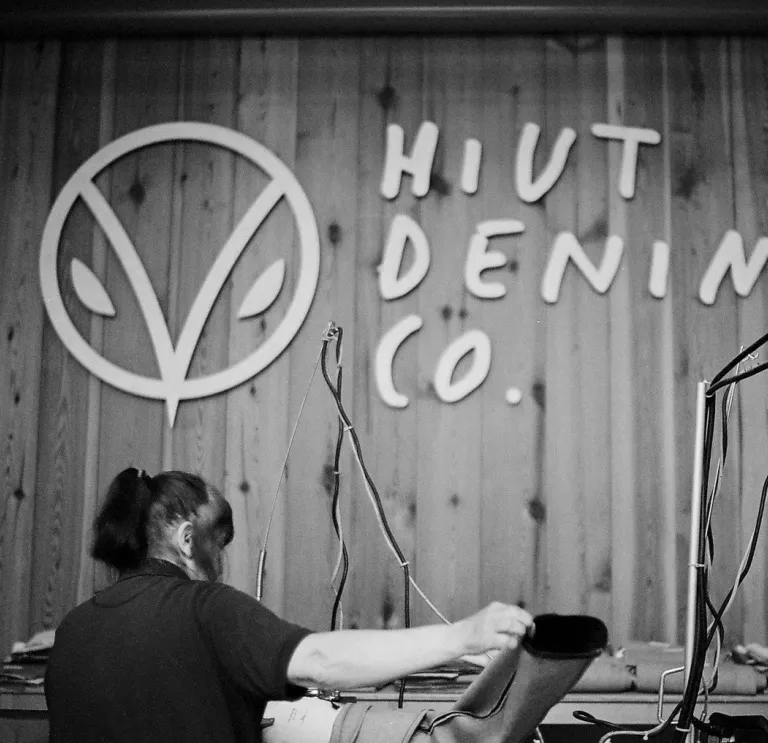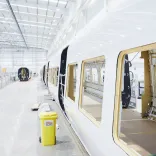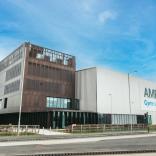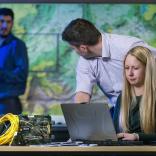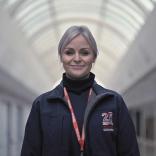Slow fashion is an idea whose time has come. For the buyer, it’s all about choosing quality over quantity. For designers and manufacturers, it’s about making clothes that are destined to last, from sustainable materials and resources, and under conditions fair to everyone with a hand in their creation.
It’s no surprise that the movement has taken off in Wales. Fine craftsmanship, and the careful balance of beauty and function, have always been treasured here.
One of the most famous slogans of sustainability was coined in the 20th century: think global, act local. It’s perhaps not too far removed from what Saint David, the patron saint of Wales, had in mind more than 1,400 years earlier, when he told his followers “Gwnewch y pethau bychain” – do the little things. In fashion, as in so much else, those little things soon add up to a lot.
Designer denim with a social conscience
At the Hiut Denim Company, fast fashion will never be part of the business plan. The factory in West Wales produces scarcely more than 100 pairs of jeans each week. Each one is put together not on a production line, but by a single expert craftsperson – “Grand Master” in company speak – who personally signs the garment before releasing it.
The limited output brings challenges. When Meghan, Duchess of Sussex, was photographed wearing Hiut on an official visit to Wales, the explosion in orders soon caused a three-month waiting list. But the brand’s many enthusiasts have shown their willingness to wait for a prestige product that’s engineered to last.
Hiut’s founders, Clare and David Hieatt, had previously started up the activewear brand Howies. Five years on from selling that company, they decided to bring the denim trade back to Cardigan – a town that had been home to Britain’s biggest jeans factory before its closure in 2002. Its former employees now make up the backbone of Hiut’s skilled workforce.
How Welsh woollens gained a global profile
As the name might suggest, Corgi is a company with a noble pedigree. Since 1989, it has held a Royal Warrant from the Prince of Wales, and its handcrafted socks are reportedly favoured by the Queen. Prince George can even be spied wearing a bespoke Corgi jumper in his first official family portrait.
Corgi takes its environmental responsibilities seriously, sourcing its natural cotton, wool and cashmere yarns from reputable, high-quality suppliers. Energy used at the factory is from 100% renewable sources, and no waste is sent to landfill. Yarn offcuts are collected by a charity for use by local schools in their craft projects.
All Corgi products are made in Wales and it’s a valued employer in its corner of Carmarthenshire, but it’s a firm with a global outlook. In 2008, it joined forces with the luxury glovemaker Dents, helping it to break new export markets – and collaborations with high-profile brands such as Burberry and Ralph Lauren have helped bring Corgi’s timeless Welsh craftsmanship to catwalks in many countries.
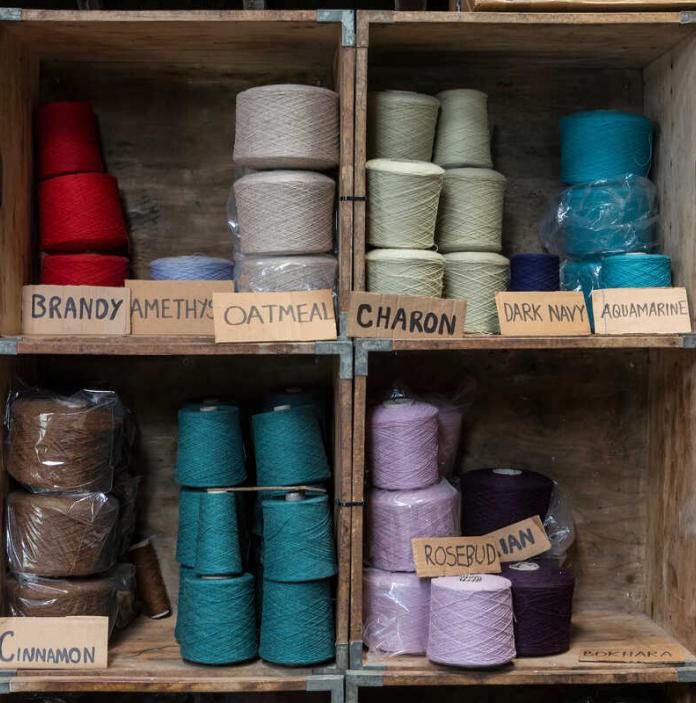
People and planet before profit
It’s with good reason that JoJo Maman Bébé is a Welsh company with a French name. From the very start, founder Laura Tenison wanted to make clear her ambition to build a global business.
That aim has certainly been achieved. JoJo has not only become one of the UK’s foremost maternity clothing and babywear brands, but has expanded its trade business into more than 50 countries worldwide.
The company has a long-standing commitment to the three Rs: reducing, re-using and recycling. JoJo has been ahead of the curve in eliminating single-use plastic from packaging, and runs a scheme called FAMTA to pass on pre-owned clothing to vulnerable families. It launched a recycled fleece collection as long ago as 2000, followed by rain jackets and bibs made from reclaimed polyester.
The company supports the Better Cotton Initiative, the world’s biggest cotton sustainability programme; and in 2016, JoJo Maman Bébé was the first mother-and-baby retailer in the UK to become a Certified B Corporation. This commits it to “the highest standards of verified social and environmental performance, public transparency, and legal accountability to balance profit and purpose”.
Weaving a worldwide success story
On a site that has been home to a mill since the 17th century, Melin Tregwynt produces woollen cloth that has changed little over the intervening centuries. Known as “Welsh tapestry”, it’s woven together from two layers to create a naturally durable fabric with bold, colourful geometric patterns.
From its beginnings as a supplier of cloth to surrounding farms in Pembrokeshire, it has developed into a modern business with an enviable international profile. Its blankets, cushions, bags and scarves have found a loyal following in Europe, the United States and the Far East alike, and its designers have produced exclusive lines for top brands including John Lewis, Heals, Liberty, Muji and Mulberry.
Sustainability is a prime consideration. Melin Tregwynt has pledged its support to the Dumfries House Declaration, a 10-point best-practice plan for a more environmentally responsible wool industry.
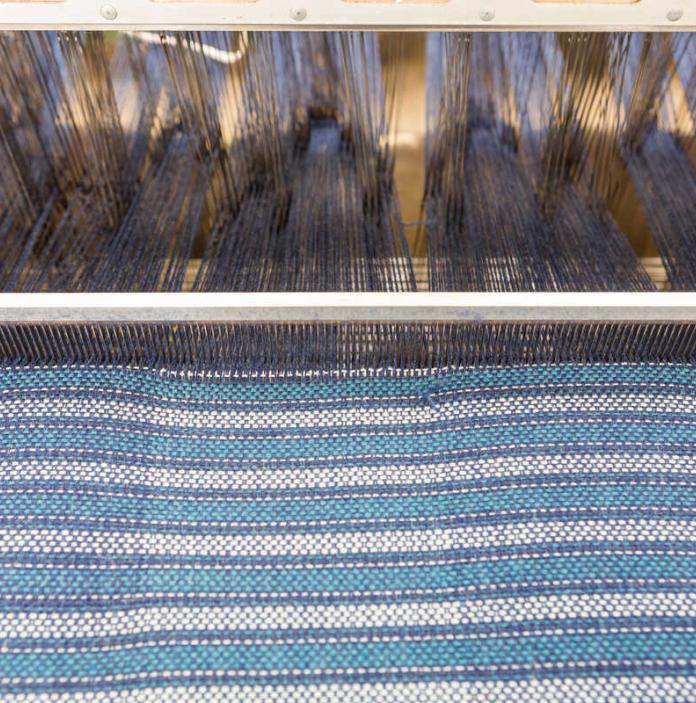
Less is more for award-winning kids’ brand
Since launching in 2016, Mabli has earned a great deal of press coverage (plus some prestigious awards) for its quirky, vintage-inspired knitwear designs. Slow fashion is key to the brand’s philosophy, according to founder Lisa Roberts. Mabli garments are hardy enough to be used, loved and handed down from child to child, encouraging parents to buy less and buy better.
International success has not been slow to arrive, with Japan now established as an important export market. Industry recognition has come just as swiftly. In every year from 2017 to 2020, the company has been recognised at the Junior Magazine Design Awards. Mabli takes steps to ensure sustainability all along its supply chain. It works with a network of trusted suppliers in Wales, Scotland and mainland Europe, and requires that manufacturers demonstrate high standards of ethics and workplace safety.
